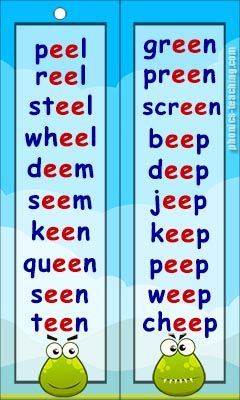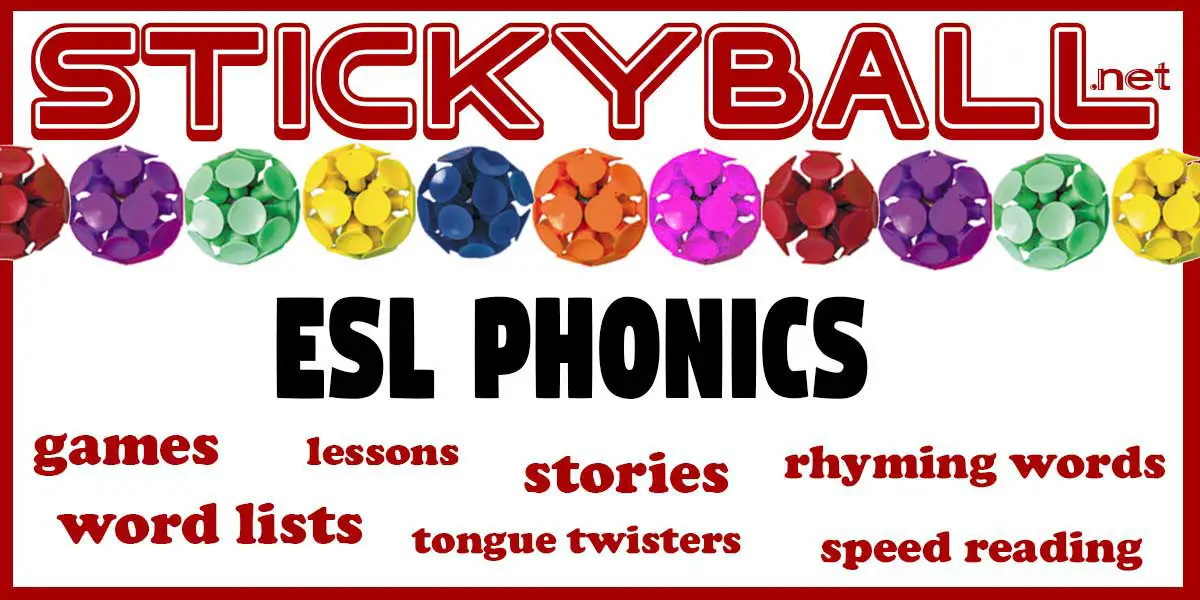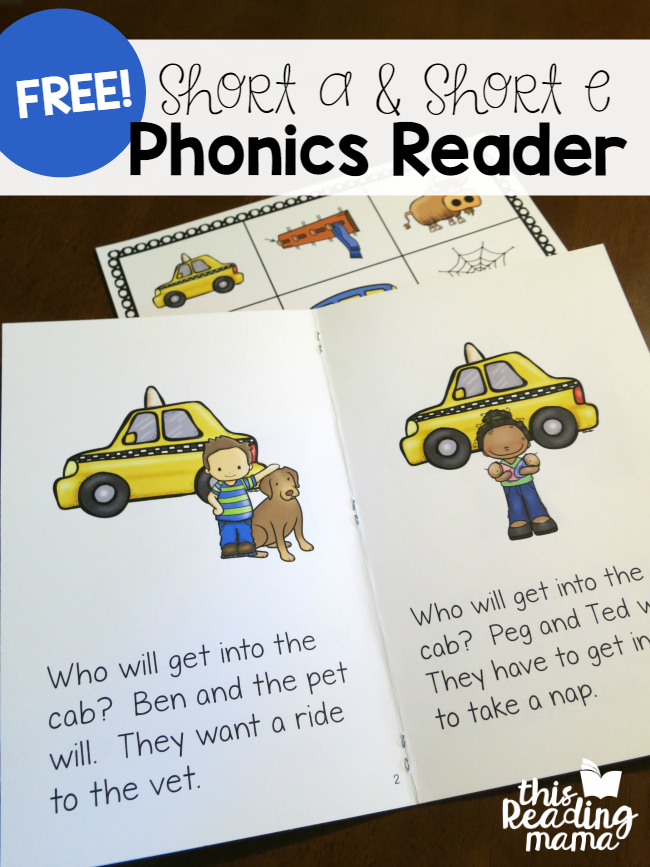Word Listsfree Printable Phonics Readers
Hidden hills cabins. The free Ultimate Phonics Reading Fluency Test lets you quickly and easily test the basic reading fluency of anyone, ages 4 to adult.
Free Printable Phonics Readers: Flashcards. When I print out my word list on the business cards, I made a second set with only a picture on it, which matched the items on the word list. We remove all the sight words and words that did not have a corresponding picture. Jan 30, 2017 - Free printable Two Letter Words flash cards. Download our free PDF and make your own flash card set. Kids Sight Words Preschool Sight Words Phonics Words Phonics Flashcards Sight Word Flashcards Phonics Worksheets The Words Three Letter Words 3. Early phonics promote literacy, which is why our preschool phonics worksheets are loaded with unique ways to start reading. We offer rhyming word matches, missing letter printables, letter tracing guides, and more. There are preschool phonics worksheets for every step of your young learner’s reading journey.
Can Your Students Read this Simple Test?
You can use this free test to check the basic reading fluency of your students, regardless of age. You can administer the test to a student in around 10 minutes.
If your students perform poorly on the test it means they are not fluent readers. If you have older students, 3rd grade up to adult, this is a huge problem that needs to be fixed ASAP. Until the reading fluency problem is fixed they are blocked from developing into good readers.
This is a good time to review reading fluency and remind ourselves why it is so important for good reading comprehension and higher reading level.
What is Reading Fluency?
Reading fluency is the ability to read text accurately, quickly, and automatically so that most of the attention can be given to comprehension.
Fluent readers read effortlessly and automatically, without getting bogged down with decoding issues. Their reading sounds natural, as if they are speaking.
Why Reading Fluency is Important
Umair sajid minhassoft transmission rebuilders. Reading fluency is a requirement for good reading comprehension.
Because fluent readers read accurately and do not have to concentrate on decoding individual words, they can focus their attention on what the text means. This allows them to make connections between the ideas in the text and their background knowledge, resulting in better comprehension.
Students who are not fluent readers by the end of 2nd grade enter a cycle of learning failure where they fall farther and farther behind as they move into higher grades. The only solution is to dramatically improve their reading fluency with a complete, systematic, explicit phonics program such as the Ultimate Phonics Reading Program.
Two Types of Non-Fluent Readers

Two common types of non-fluent readers are Guessers and Plodders.
Guessers
Guessers are whole word memorizers who never learned how to accurately sound out new words with phonics.
When they try to read a word they don't already know they will guess, usually by substituting a different word starting with the same letter and with similar length. Or sometimes they'll just skip the word altogether.
This causes poor comprehension because they are not reading what the text actually says. They are changing the meaning by substituting incorrect words and leaving words out.
Plodders
Plodders read slowly and laboriously, word by word. They are better off than guessers because at least they are sounding out new words instead of guessing and skipping.
The problem with plodders is their phonics skills are too weak. They give so much attention to figuring out individual words that they can't keep track of the meaning, which causes poor comprehension.
How to Improve Reading Fluency
For both Guessers and Plodders, the solution is to teach them with a thorough, systematic phonics program, like the Ultimate Phonics Reading Program.

For students who guess, they need to learn the phonics system of English and how to sound out words accurately based on the spelling.
For students who read slowly, they need a lot of controlled, systematic reading practice so they learn to sound out words quickly and automatically.
Phonics Words List Free

Word Lists Free Printable Phonics Readers Printables
A program like Ultimate Phonics, with thousands of expertly organized words and sentences, acts as a training program to turn slow, halting readers into fast, accurate readers with good comprehension. Chapter 4 equations mr.'s learning website problems.
Free Test for Reading Fluency

Download our free Ultimate Phonics Reading Fluency Test or read it below. Anyone who performs poorly on this test will benefit greatly from our Ultimate Phonics software.
Struggling readers require a lot of practice with long ea words. Some long ea words include: seal, heat, meal, fear, real, dean, treat…etc. Usually long ea words are taught with long ee words like: feel, sleet, free, gleam, bleak, seem, cheek…etc.
Long ea words make the long e sound. They contrast with short e words that make the e_ as in elephant sound. Here are some more long ea words:
Word Lists Free Printable Phonics Readers Worksheets
east, steam, beast, lead, leave, pea, beat, sea, beam, weak, smear, tweak, spear, breach, plead, meal, mean, wean, teach, bead, speak, scream, year, cheat, peach, heat, flea, cream, jeans, dream, weak, near, dear, leach, heal, gleam, deal, tear, clean, team, neat, bean, tea, eat, treat, plea, leak, zeal, teal, real, squeak
To help your student practice long ea words, here’s a free book:
In the above ea phonics book, your student can practice a wide variety of phonics sounds. When teaching long ea words, it can be tempting to introduce the widely used, though false idea that, “When two vowels go walking, the first vowel does the talking.” Sure, there are some long vowel sounds wherein this phrase is true. For another free book, check out The Eel.
However, in later phonics sounds, the idea that the “first vowel does the talking” is wrong. Struggling readers need to veer from this false claim. Don’t say it at all! Discourage parents from saying it as well. It can delay struggling readers in both reading and spelling.
Phonics Books For Beginning Readers
Later, “the first vowel does the talking idea” will confuse struggling readers. Oi, oy, ow, au, oo are just some examples of “two vowels” wherein the first vowel does NOT do the talking. Instead of teaching kids to focus only on the first vowel, highlight the second vowel too. Help struggling readers see vowel patterns as two letters that belong together.
Furthermore, teaching kids to ignore the second vowel will cause spelling problems. For example, when teaching long ea words, you don’t want your student to spell steal as stel or bean as bein. Help them see the second vowel too. As a result, your student will be able to spell! And spelling is tightly linked to reading!
Spelling is basically reading, but backwards. If reading is decoding, spelling is encoding. Spelling is actually harder than decoding. In spelling, kids must recall the sound and visual components of vowel units from memory.

Our brains forget. Often. This is not a flaw. In many ways, forgetting is a gift. Be patient with your struggling reader. She will forget old sound units. That’s okay. Explicitly state the sound for her when she does. She will forget long ea words. Thus, just remind her explicitly.
Kids need frequent reminders of old sound units. In some ways, we have to view the brain as a sieve. This is true of everyone. We easily forget things. It takes multiple exposures across a broad range of time to remember. This is a gift. If we remembered everything, our brains would be overwhelmed with information.
Consider someone with hyperthymesia, a condition in which someone remembers an unusually large amount of information. For example, a person with hyperthymesia can remember exactly what they did five years ago on August 1st, even when that date has no unique meaning. They can remember very specific details, like what shirt they wore, what the air smelled like, what songs were on the radio…etc. People with hyperthymesia often report that their memories are “burdens.” They state that they’re “overwhelmed” with information. They often wish they could forget easily like ordinary people.
When students forget, you might feel frustrated: “I just taught this!” However, try to view your student’s forgetting differently. Their brains can forget. In many areas of life, forgetting should be celebrated. Yes, in reading, frequent long-term forgetting can be a problem. Thus, it is your job to essentially teach their brain: Hey! Don’t forget this stuff! It’s important.
Teach with patient, explicit instruction and repetition. Concepts are not learned in a single lesson. Rather, concepts are learned over many, many lessons through delayed review.
When working with struggling readers, let them review old material often. When teaching long vowel sounds, your student may forget long ea words. That’s okay. Give them the tools they need to practice. Like systematic decodable books!
Reading Elephant offers printable, systematic phonics books designed for struggling readers. The books teach sound units one at a time. Kids can practice old material often. On Reading Elephant books, struggling readers can master new concepts in slow, steady increments. This contributes to reading success.
